Up to 18 years of age – child, young person from 13 years of age till 25 years of age.
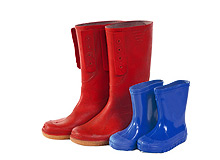

Up to 18 years of age – child, young person from 13 years of age till 25 years of age.

The duty of parents is not to let children until 7 years of age stay unattended by adults or person not younger than 13 years.
A child who has not reached 16 years of age cannot stay in public places unattended by parent, guardian, foster family or other person authorized by them during the night time (the night time is regarded to start at 22.00 and end at 6.00).
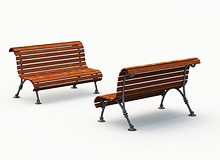
Restaurants:
There is no specific prohibition regarding the restaurants, but above and below mentioned prohibitions apply.
Dance Halls:
There are no specific prohibitions regarding the dance halls and ballrooms, but above and below mentioned prohibitions apply.
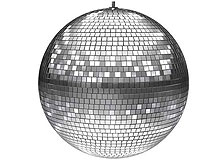
Clubs, Bars:
There is no specific prohibition regarding the night clubs, bars or similar entertainment districts, but above and below mentioned prohibitions apply.
Harmful Places:
Persons until the age of 18 are not allowed to enter the places offering intimate character entertainment. According to Latvian law the actions taken in these places should not be seen from outside.
There is no strong definition of places harmful to young persons. The notion of harmful places to young persons derives from various laws. The common stipulation of law is that the materials (it should be understood thatplaces where are such materials as well), which promote cruel behavior, violence, erotica and pornography and which pose a threat to the psychological development of a child may not be accessible to a child, irrespective of the form of expression, devices for showing and location thereof.
Places for gambling:
In accordance with the Law On Lotteries and Gambling, a child may not have access to gaming houses and a child may participate in gambling. Child is a person until 18 years of age.
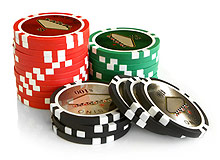
It is not allowed to sell spirits to children. They are not allowed to consume them. Child is a person until 18 years of age.
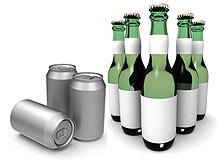
It is prohibited to show, sell, give as a gift, rent or promote to a child toys and video recordings, computer games, newspapers, magazines and other types of publications, in which cruel behavior, violence, erotica and pornography are promoted and which pose a threat to the psychological development of a child.

A child may not smoke anywhere. Child is a person until 18 years of age. Tobacco products may not be sold to a child.
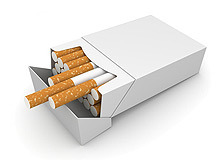
A child who has not reached 16 years of age is prohibited during school hours without the written permission of the educational institution administration and during the night to be located in internet premises, computer salons, internet cafes and other similar premises where for payment internet and computer game services are provided. The night time is from 22.00 till 6.00, if local government has not determined stricter time period.
Materials, which promote cruel behavior, violence, erotica and pornography and which pose a threat to the psychological development of a child may not be accessible to a child, irrespective of the form of expression, devices for showing and location thereof.
It is responsibility of any person who allows a child access to internet to ensure that child is protected from harmful content.
It is the duty of internet provider to inform the internet user about the possibility to install internet content filter which restricts the availability of such materials which promote cruel behaviour, violence, erotica and pornography and which pose a threat to the psychological development of a child. Internet provider must install such a filter free of charge if internet user requests that.
Latvia is running Net-Safe Project and Hotline Project within the framework of the European Community Program „Safer Internet plus”.
There are many possibilities to inform Latvian institutions (including State Police and the State Inspectorate For Protection Of Children's Rights) on harmful matters on the internet.

A natural person who has reached 16 years of age has the right to acquire, possess and carry a gas spray intended for self-defence, as well as to acquire and utilise Class 1 and 2 pyrotechnic articles.
A natural person who has reached 18 years of age has the right to:
1) acquire, possess and transport non-firearm weapons, low energy pneumatic weapons and munitions thereof;
2) acquire, possess and carry gas pistols (revolvers), munitions thereof and electric shock devices; and
3) acquire and utilise Class 3 pyrotechnic articles.
A Latvian citizen, a non-citizen of Latvia, an alien, a stateless person and a refugee that has received a permanent residence permit in the Republic of Latvia (hereinafter – a person permanently residing in Latvia) and that has reached 18 years of age, if the certain restrictions ofLaw do not apply thereto, has the right to acquire or receive a weapon as a personal award, to possess and transport Category B, D and C long-barrelled smooth-bore hunting, sport and self-defence firearms, high-energy pneumatic weapons and munitions thereof, as well as to utilise such firearms in hunting, self-defence, practice shooting and shooting sports competitions.
A person permanently residing in Latvia who has reached 21 years of age and who has a hunting licence and not less than three years of experience as a hunter (if the certain restrictions ofLaw do not apply to such person) has the right to acquire or receive a weapon as a personal award, to possess and transport Category B and C long-barrelled rifled hunting firearms and munitions thereof and to utilise such weapons in hunting, practice shooting and shooting sports competitions.
A person permanently residing in Latvia who has reached 18 years of age and who has membership of a registered sports organisation of at least three years standing and at least the second sport class in shooting (if the certain restrictions ofLaw do not apply to such person) has the right to acquire or receive a weapon as a personal award, to possess and transport Category B and C long-barrelled – rifled sports firearms and munitions thereof, Category B short- barrelled firearms the calibre of which is not larger than 5.6 millimetres (22 LR) and the munitions thereof, and to utilise such weapons in practice shooting and shooting sports competitions.
A Latvian citizen, a citizen of a Member State of the European Union and a citizen of a state of the European Economic Area who have received a permanent residence permit in the Republic of Latvia, who has reached 21 years of age (if the certain restrictions ofLaw do not apply to such person) has the right to acquire or receive a weapon as a personal award, to possess and carry Category B semi-automatic, non-automatic and single shot short-barrelled firearms the calibre of which is not more than 9 millimetres, and munitions thereof, and to utilise such weapons in practice shooting and shooting sports competitions, as well as to use them for self-defence.
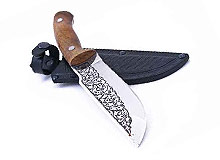
Criminal law provides: for a person who commits an act of sexual intercourse, or pederastic, lesbian or other unnatural sexual acts of gratification, with a person who has not attained the age of sixteen years and who is in financial or other dependence on the offender, or if such offense has been committed by a person who has attained the age of majority, the applicable sentence is deprivation of liberty for a term not exceeding four years.

Labour law provides:
(1) It is prohibited to employ children in permanent work. Within the meaning of this Law, a child shall mean a person who is under 15 years of age and who until reaching the age of 18 continues to acquire a basic education.
(2) In exceptional cases children from the age of 13, if one of the parents (guardian) has given written consent, may be employed outside of school hours doing light work not harmful to the safety, health, morals and development of the child. Such employment shall not interfere with the education of the child. Work in which children may be employed from the age of 13 shall be determined by the Cabinet.
(3) In exceptional cases if one of the parents (guardian) has given written consent and a permit from the State Labour Inspection has been received, a child as a performer may be employed in cultural, artistic, sporting and advertising activities if such employment is not harmful to the safety, health, morals and development of the child. Such employment shall not interfere with the education of the child. The procedures for issuing permits for the employment of children as performers in cultural, artistic, sporting and advertising activities, as well as the restrictions to be included in such permits with respect to working conditions and employment conditions, shall be determined by the Cabinet.
(4) It is prohibited to employ adolescents in jobs in special conditions which are associated with increased risk to their safety, health, morals and development. Within the meaning of this Law, an adolescent shall mean a person between the ages of 15 and 18 who is not to be considered a child within the meaning of Paragraph one of this Section. Work in which the employment of adolescents is prohibited and exceptions when employment in such jobs is permitted in connection with occupational training of the adolescent shall be determined by the Cabinet.
(5) An employer has a duty, prior to entering into an employment contract, to inform one of the parents (guardian) of the child or adolescent regarding the assessed risk of the working environment and the labour protection measures at the relevant workplace.
(6) Persons under 18 years of age shall be hired only after a prior medical examination and they shall, until reaching the age of 18, undergo a mandatory medical examination once a year.
(7) Aliens (persons who are not Latvian citizens or non-citizens) may be employed only if they have received a work permit, except in the cases specified in regulatory enactments.
In several bilateral agreements Latvia has entered there is provided possibility for young persons to spend working holiday in Latvia without the need to obtain.
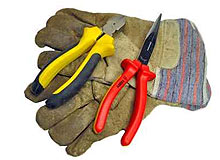
Children and young people can contact the state child protection agency. This has a telephone hotline. Children and young people thus obtain psychological support, and learn to trust others, by reporting on their problems.
Telephone number of the Children Hotline: 116 111
http://www.bti.gov.lv/eng
In addition, there is a specific institution: the Children's Rights Department within the Office of the Ombudsman of Latvia. Thus, children and young people turn to the Ombudsman:
German Embassy
Raina Bulvaris 13
Riga
phone: 00371 67085100
fax: 00371) 67085148
emergency phone: 00371 29466456
see: http://www.riga.diplo.de/Vertretung/riga/de/02/Oeffnungszeiten/Oeffnungszeiten.html (website in german)
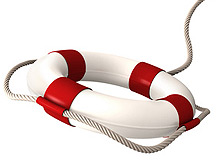
Home page of the Ministry for Children and Family Affairs: http://www.bm.gov.lv/eng/
Home page of the State Inspectorate For Protection Of Children's Rights: http://www.bti.gov.lv/en
Youth portal: http://www.jaunatneslietas.lv/page/1 (for the time being only in Latvian)
Home page of the Agency of International Youth Programmes: http://www.jaunatne.gov.lv/en

no
source:
embassy Of Latvia (03/2009)
